KHUJRAHO -City with Extraordinary Architectural Importance-
06 Nov 2020 11:02:40
India has a rich cultural history, and with the history comes the story and with story comes the architecture of that city.
The architecture of any city has a tale to tell us and is waiting to be heard.
Architecture is not just a structure it has a more and more to tell about itself it has its own style, secrets, lifestyle, and culture always a story to tell from where it all started.
What are the things that excite you when you hear any city? It is its food, culture or architecture. Architecture is something which marks the identity of any city.
Khajuraho
If you are a lover of art, and if your mind is after the mystery of the history and eager to listen the untold tales and seeking for a city to have both art as well as history. This city has both the thing to offer and will mesmerise you with its art and architectural history.
Khajuraho is situated in Madhya Pradesh and Vindhya Range of mountains offer a perfect backdrop for the town. The small town is famous for excellent temples of Hindus and Jains. The rock carvings in the temples are beyond description. They were constructed by the rulers of Chandela dynasty between 950 AD and 1050 AD.
Out of 85 temples constructed here, only 22 survived the test to time. A beautiful place that displays the artisanship of the past, Khajuraho has many important places to visit.
8 historical heritage monuments to visit in khajuraho:
1. Kandariya Mahadev-
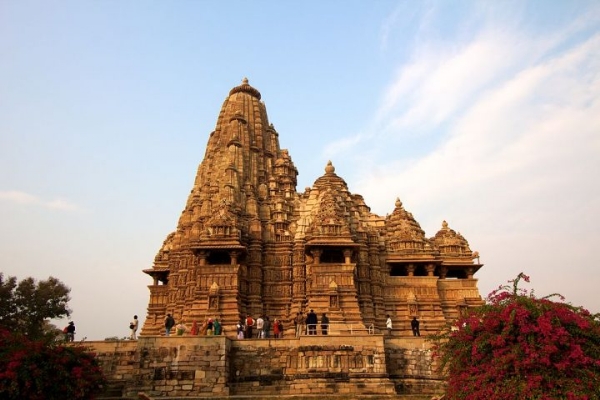
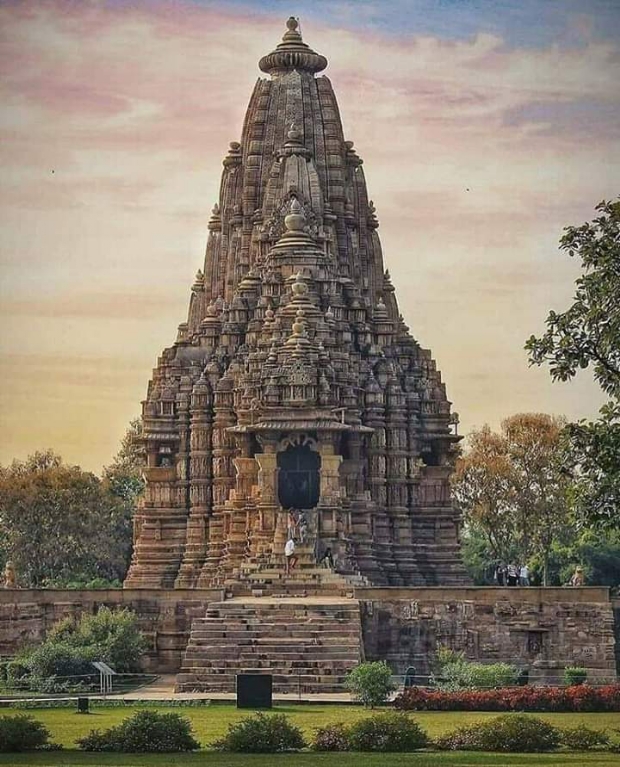
Kandariya mahadev is the largest and tallest among the entire 22 heritage monuments built by Chandel dynasty, also famous by the name of khajuraho temple well known for its intricate erotic sculptured carving on the walls of the temple. It is considered one of the best examples of temples preserved from the medieval period in India.
Kandariya mahadev temple was built in 1020-1050 AD dedicated to lord Shiva. The temple is considered to be most impressive and refined among the khajuraho complex with over 900 sculpture carved into sandstone stacked without mortar. The vibrantly carved exterior contrasts with a very plain interior space that houses a Shiva lingam in the womb (griha) of the temple.
2. Lakshmana temple
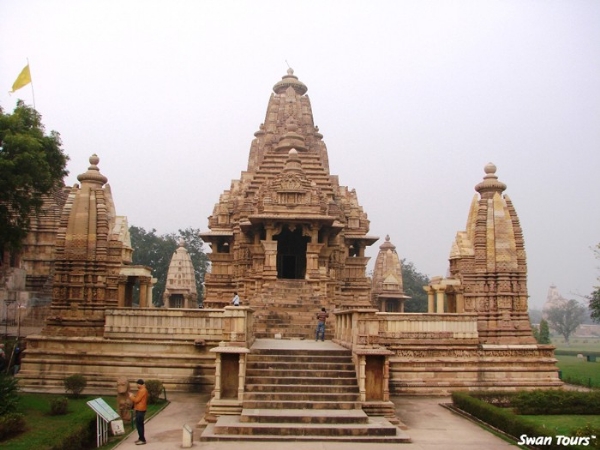
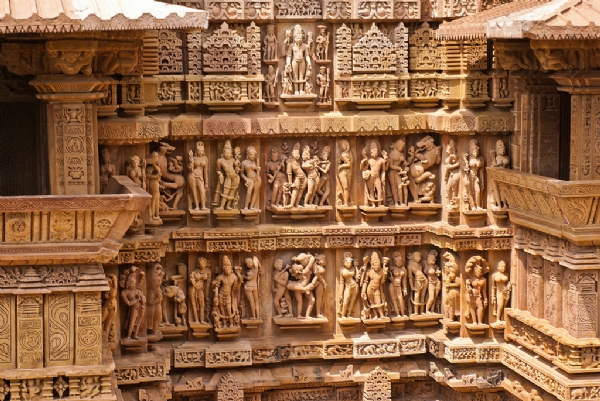
Lakshmana temple, dedicated to Lord Vishnu, was built from 930-950 AD during the reign of King Yasovarman of the Chandela kingdom. It houses a sacred image of Vaikuntha-Vishnu brought from Tibet. Though the temple is one of the oldest in the Khajuraho fields, it is also one of the most exquistely decorated, covered almost completely with images of over 600 gods in the Hindu Pantheon. The main shrine of the temple, which faces east, is flanked by four freestanding subsidiary shrines at the corners of the temple platform.
The temple is famous for the explicitly erotic carvings on the southern side of the temple, though these make up only a small fraction of the total.
3. Ajaigarh fort
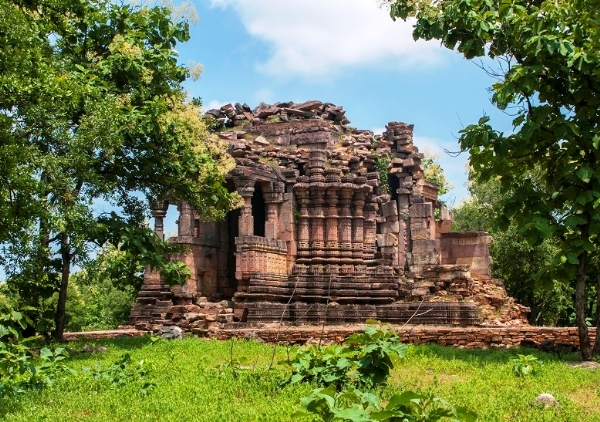
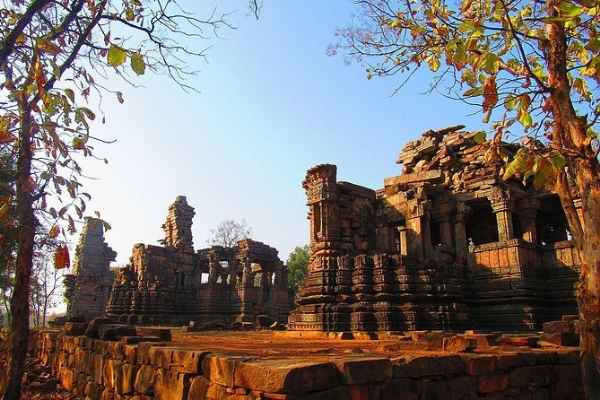
Ajaigarh Fort is like one of the secret worlds; its grandeur can only be seen when you enter it! Only thing is, it is not maintained or restored like other popular historical sites. Wrapped by the Vindhya Hills, the alluring vista of Ajaigarh Fort draws our attention. A climb through the zigzagging stairs takes us to a big entrance. Earlier there used to be five entrances, now only two of them remain. Today, Ajaigarh Fort contains ruined temples and sculptures scattered across the fortress. These sculptures and temples indicate to an excellent craftsmanship of Chandela architecture.
4. Dulhadev temple
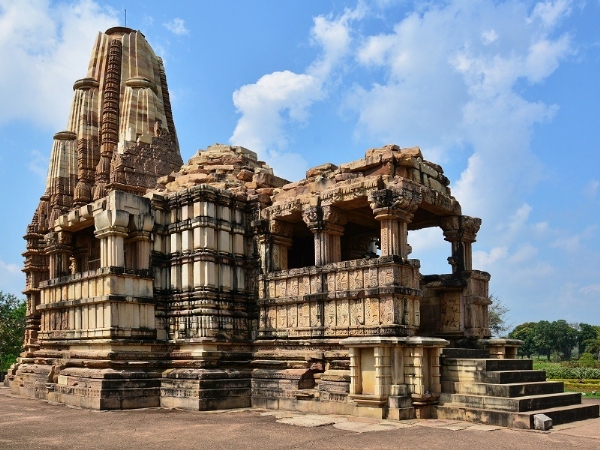
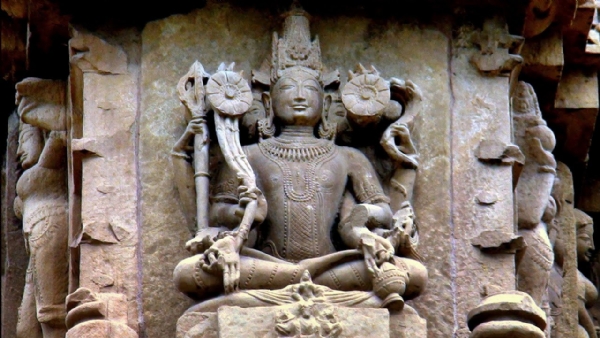
The temple is dedicated to the god Shiva in the form of a linga, which is deified in the sanctum. 'Dulodeo' means "Holy Bridegroom". The temple is also known as "Kunwar Math". The temple faces east and is dated to 1000–1150 AD. It is the last of the temples built during the Chandela period. The temple is laid in the seven chariot plan. The figurines carved in the temple have soft expressive features unlike other temples. The walls have a display of carved celestial dancers in erotic postures and other figures.
5. Parshvanath temple
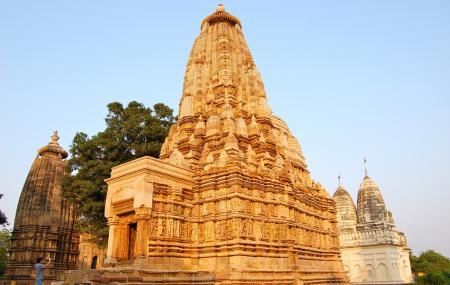
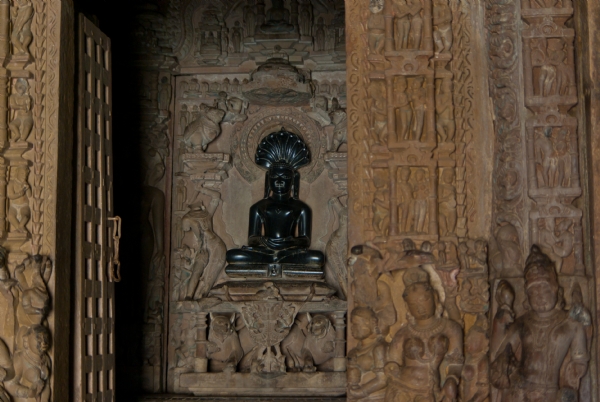
The Parshwanath temple, Khajuraho is the largest shrine in the Eastern group of the monument. Its interior walls are intricate carvings with detailed motifs and religious symbols, whereas the exterior walls have stunning human and animal carvings. The architecture of this shrine is predominantly Hindu temple architecture, however, you might be able to locate Islamic and Buddhist elements.
According to historians, the Parshwanath temple is one of the oldest temples in the Eastern Temple complex and is dedicated to the Parshvanatha, the 23rd Tirthankara of Jainism.
6. Chausath yogini temple
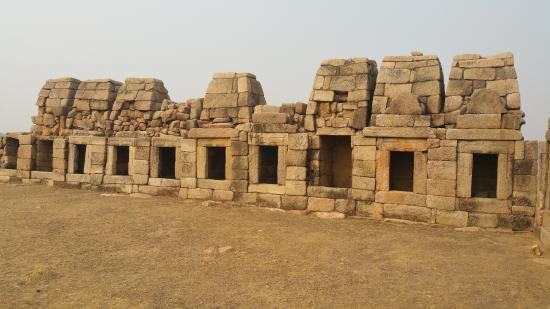
It is the oldest surviving temple at Khajuraho. Unlike the Chausath Yogini temples at other places, it has a rectangular plan.
The construction of the Chausath Yogini temple can be dated to approximately 885 CE. It is the earliest extant temple at the Chandela capital Khajuraho. The temple has been classified as a Monument of National Importance by the Archaeological Survey of India. The cult of the Yoginis was well-established in the Chandela territory. The Chausath Yogini temples are connected to the Kapalika and Kaula sects.
The temple is located among the Western group of temples on a 5.4 m high platform.
7. Vishwantha temple
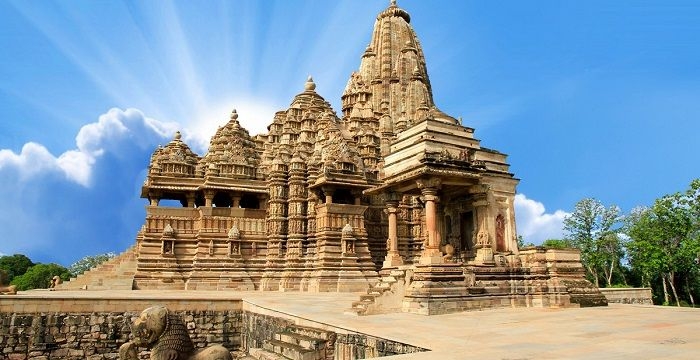
The Vishvanatha temple is characteristic of the Central Indian architectural style that begins with Lakshmana Temple (c. 930–950 CE) and culminates with the Kandariya Mahadev Temple (c. 1030 CE). These three temples represent the most fully developed style at Khajuraho.
8. Nandi temple
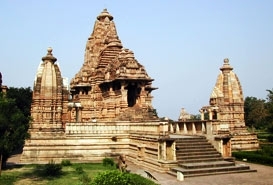
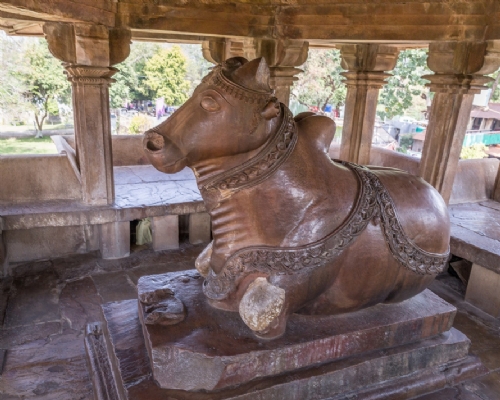
It is dedicated to Nandi, the bull which serves as the mount (vāhana) of Shiva, in Hindu mythology. As a common architecture trend, temples of Shiva (and Parvati) display stone images of a seated Nandi facing Shiva. Following the trend, this temple is located opposite to the Vishvanatha Temple, which is dedicated to Shiva.
The temple stands on a rectangular modest. The plan of the main structure is of the shape of cross quadrate, where the rectangle form the sanctum and the cross edges form the four balconies. The temples walls are like balcony walls and do not complete cover the sanctum completely. The roof rests on the pillars.
Follow this series of architectural cities to get to know more about its wonderful architecture and listen to its story with a little more interest.
- Vaishnavi Sarwate